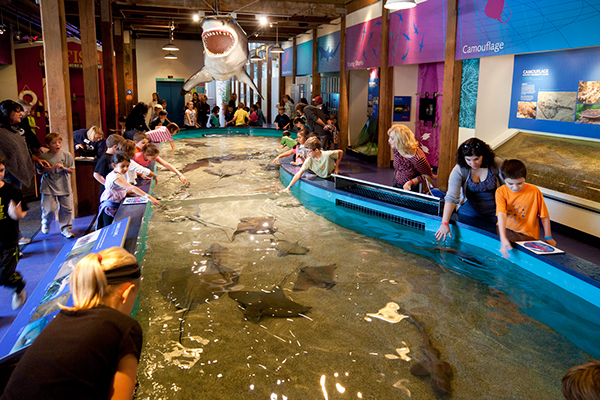What's Hot and What's Not During an Interpretive Interaction
Remember, the E in POETRY is for Enjoyable. People participate in interpretive programs because they want to, not because they have to. They they expect to enjoy themselves.

Ways to make your interpretation enjoyable

Ways to make your interpretation enjoyable
- Smile
- Be aware of your body language (look approachable)
- Initiate interactions
- Involve the senses
- Incorporate good stories
- Use active verbs (play, involve, touch)
- Include a few "WOW" or unusual facts
- Show cause and effect
- Use analogies and metaphors
- Incorporate questions (refer to previous lesson)
- Ask guests to help (become a citizen scientist, skip the straw, etc.)
- Turn something that seems negative (like construction) into a positive (state of the art habitats and better animal welfare)
Use your Creativity
- Believe in the worth of your ideas
- Include your personality
- Look for more than one right answer
- Explore ideas outside of your area
- Ask "what if" questions
- Be motivated to go beyond the "status quo"
Things to avoid while doing interpretation
- Using overwhelming scientific data
- Using defensive body posture (arms crossed)
- Not making eye contact with guests
- Yelling or reprimanding guests
- Not greeting visitors
- Doom and gloom predictions causing a sense of hopelessness
- Overuse of humor
- Hearing the same old thing at every interpretive station
- Providing false information. If you do not know the answer to something it is ok to say that you do not know.
Do not try to satisfy your vanity by teaching a great many things. Awaken people's curiosity. it is enough to open minds; do not overload them. Put there just a spark. If there is some good inflammable stuff, it will catch fire. -Anatole France
1 point
True or False: Creating an enjoyable experience for guests is a key responsibility of being a Gallery Ambassador